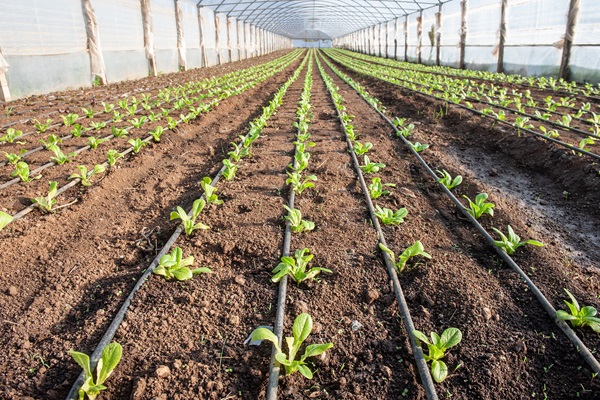
Rome – Soils are vital for feeding the world, QU Dongyu, Director-General of the Food and Agriculture Organization of the United Nations (FAO), today told the opening of the Global Symposium on Soils for Nutrition.
“Healthy soils can significantly contribute to ending hunger and creating a healthy planet, but only if we address soil global threats, including nutrient imbalance,” Qu said.
The main objective of the Symposium is to review the state of knowledge on the role of soil fertility in delivering sufficient, high-quality, safe, and more nutritious food for better nourished people, animals and plants.
The Symposium is also expected to identify critical knowledge gaps and provide the basis for discussion among policymakers, food producers, scientists, the fertilizer industry, practitioners, and other stakeholders on the creation of solutions that can provide more nutritious agrifood systems for enhanced human health and wellbeing while protecting the environment.
FAO’s Global Soil Partnership, the Intergovernmental Technical Panel on Soils, and the International Network on Fertilizers Analysis are co-organising the Symposium which is being held in a virtual format from 26 to 29 July 2022. Participants include international organizations, scientists and practitioners, NGOs, civil society, land users and indigenous peoples, as well as local communities, and industry and private sector representatives.
Qu said the recent FAO report on the State of Food Security and Nutrition in the World confirmed a significant rise in global food insecurity and malnutrition as a consequence of multiple drivers, including the COVID-19 pandemic, climate crisis and ongoing conflicts. He also mentioned the rising cost of fuel, feed and fertilizer. In addition, there are other problems such as land degradation, growing inequalities, pollution, and loss of biodiversity.
These complex and overlapping challenges must be addressed, while also producing safe, affordable and nutritious foods, the Director-General said. In order to achieve this, agrifood systems must be transformed to be more efficient, more inclusive, more resilient and more sustainable, he added.
“We cannot achieve the 2030 Agenda and the Sustainable Development Goals without this transformation and we only have seven years to do so. Healthy soils are our ally to make this transformation a reality,” Qu said.
Ninety-five percent of global food is produced in soils. Soils have the capacity to store, transform, and recycle nutrients that people need to survive. Of the 18 nutrients essential to plants, 15 are supplied by soils – if they are healthy.
The FAO Director-General mentioned the example of black soils, which generate around two-thirds of global sunflower seeds, 30 percent of global wheat supply and 26 percent of global potatoes. He said black soils not only sustain people who live on the land, but also contribute significantly to feeding the world through their large share of food exports.
“Unfortunately, loss of soil fertility means that many vegetables and fruits are not as rich in vitamins and nutrients as they were 70 years ago. Today, two-thirds of the world’s population is at risk of nutrient deficiency,” Qu said.
Fertilizer problems
In the FAO report Status of the World’s Soil Resources, soil nutrient imbalance is identified as one of the main global soil threats, caused by the underuse, misuse, and overuse of nutrients.
The excessive use or the misuse of fertilizers also have negative effects on ecosystems and contribute to climate change, including through biodiversity loss and greenhouse gas emissions.
Translating these impacts into economic losses totals approximately $200 billion annually, Qu said. Moreover, the costs for human health and the impact on aquatic and terrestrial ecosystems amount to $400 billion – $4 000 billion annually, he added.
Solutions
The FAO Director-General summarised some initiatives to manage soil sustainably.
The Voluntary Guidelines for Sustainable Soil Management are a key tool, Qu told the Symposium. The International Code of Conduct for the Sustainable Use and Management of Fertilizers constitutes a transversal approach to a complex problem, he added.
"We must use these tools and seek cross-cutting solutions that embrace nature-positive solutions, such as bio-fertilizers, increased soil organic matter, and crop diversification. They should also optimize technological tools for more precise use of fertilizers, and promote the circular economy," Qu said. "We also need to support enhanced soil information and monitoring systems, harmonized soil analysis protocols, fertilizer quality assessment, and empower farmers to adopt good practices."
The Director-General said FAO is committed to a holistic, coordinated cross-sectoral collaboration to promote and boost soil fertility and combat nutrient imbalance.
He pointed out that health people and a healthy planet both begin with healthy soils.
Following a country-driven process, FAO’s Global Soil Partnership has been working on soil data, mapping and assessment, including the Global Soil Nutrient and Nutrient Budget Maps in order to understand the fertility of our global soils and guide decisions.